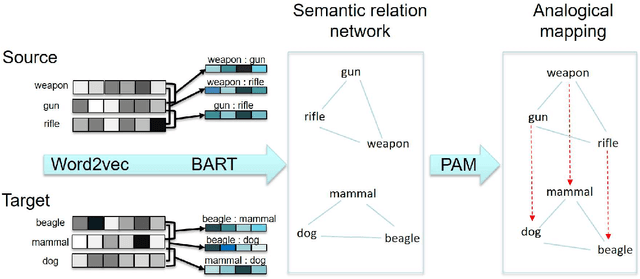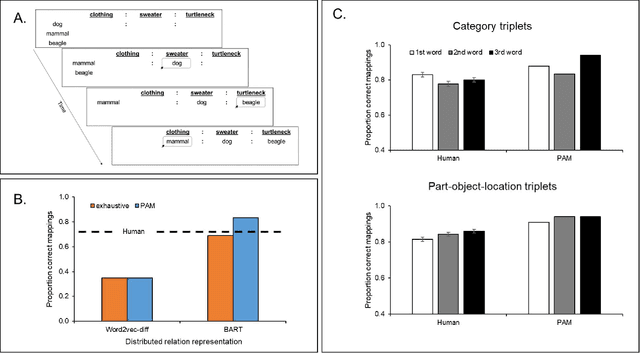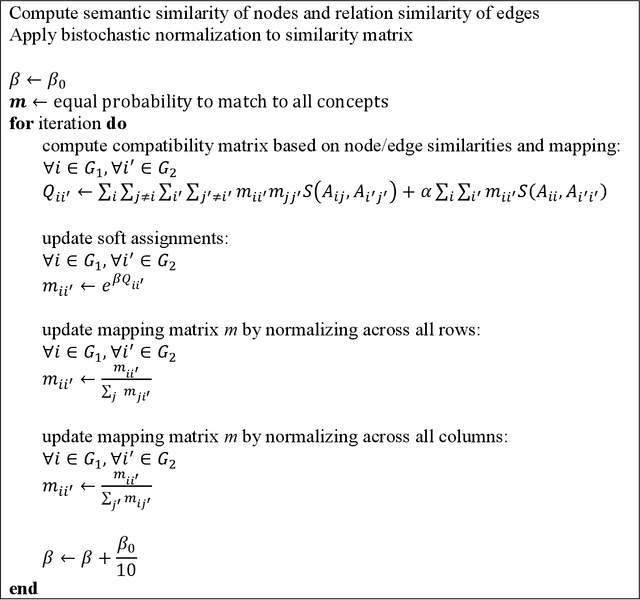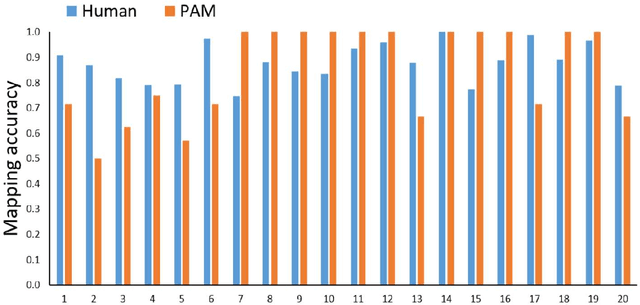Probabilistic Analogical Mapping with Semantic Relation Networks
Paper and Code
Mar 30, 2021



The human ability to flexibly reason with cross-domain analogies depends on mechanisms for identifying relations between concepts and for mapping concepts and their relations across analogs. We present a new computational model of analogical mapping, based on semantic relation networks constructed from distributed representations of individual concepts and of relations between concepts. Through comparisons with human performance in a new analogy experiment with 1,329 participants, as well as in four classic studies, we demonstrate that the model accounts for a broad range of phenomena involving analogical mapping by both adults and children. The key insight is that rich semantic representations of individual concepts and relations, coupled with a generic prior favoring isomorphic mappings, yield human-like analogical mapping.
 Add to Chrome
Add to Chrome Add to Firefox
Add to Firefox Add to Edge
Add to Edge